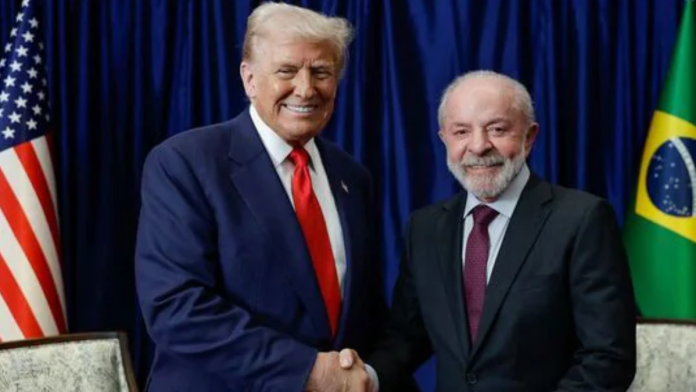In a significant bipartisan action, the U.S. Senate has approved a resolution to end tariffs imposed on Brazil. The measure passed with a 52–48 vote, signalling rare cooperation between both major political parties. Five Republican senators joined Democrats in supporting the bill, which seeks to terminate the national emergency declared in July that allowed the tariffs to take effect.
The emergency was declared after Brazil prosecuted its former president for attempting to overturn an election. The U.S. administration responded by sharply increasing tariffs on Brazilian goods, accusing the South American nation of threatening American national security and economy. Lawmakers now argue that these tariffs have burdened U.S. consumers and disrupted long-standing trade relations.
Despite the Senate’s approval, the resolution faces steep challenges in the Republican-controlled House of Representatives, where similar efforts have been blocked in the past. Even so, the Senate’s vote represents growing dissatisfaction among lawmakers — including from within President Trump’s own party — over the ongoing trade disputes that have led to price increases at home.
Lawmakers express concern over economic impact
During the Senate debate, many legislators voiced concern about how the tariffs have affected daily life in the U.S. Prices of food, clothing, fuel, and construction materials have risen since the tariffs were imposed. Lawmakers backing the resolution said that the additional costs are being passed on to consumers and small businesses already struggling with inflation.
U.S. to enforce 100% tariffs on Chinese imports after Beijing’s rare earth measures
Supporters of the resolution argued that the President had overused emergency declarations to justify tariffs and sanctions, bypassing Congress in the process. They said this approach undermines checks and balances and places unnecessary economic stress on families.
However, some senators opposed the resolution, warning that lifting the tariffs could weaken the country’s trade position. They insisted that maintaining these measures was essential for protecting national interests and countering what they view as unfair foreign trade practices.
The Senate’s move came while President Trump was abroad on a five-day trip. The timing of the vote added to the political friction between Congress and the White House over who holds authority in trade policy decisions.
The President’s executive order had accused Brazil of threatening U.S. national security and politically persecuting its former president, who was recently sentenced to 27 years in prison for attempting to overthrow democracy. Following this, the U.S. imposed sanctions on Brazilian officials and dramatically raised import duties.
Brazil, in response, criticized the U.S. action, pointing out that over the past 15 years, America has enjoyed a $410 billion trade surplus with the country. Many in the Senate cited this figure as evidence that Brazil was not a threat to U.S. economic stability. The growing disagreement reflects how global politics and domestic economics have become increasingly intertwined in shaping American trade decisions.
US sanctions rock Singapore’s Khoon Group—links to alleged cybercrime network spark corporate exodus
Senate sets stage for more trade votes
The resolution on Brazil is the first in a series of trade-related bills expected to be discussed in the Senate this week. Upcoming measures aim to address tariffs on Canada and other countries affected by similar trade actions. These votes are part of a broader effort by Congress to reassert its role in setting trade policy and to limit the executive branch’s ability to act unilaterally through emergency powers.
Although the House of Representatives is expected to block the resolution, the Senate’s decision marks a turning point in the ongoing debate over trade policy. It signals a growing willingness among both Republicans and Democrats to question the effectiveness of tariffs as a tool for economic or political leverage.
For now, the tariffs on Brazilian goods remain in place, but the Senate vote has sent a strong message — that lawmakers are prepared to challenge policies they see as harmful to the American economy and consumers. The discussion over trade authority and economic fairness is likely to continue, as both parties weigh the broader implications of tariff-driven strategies in a changing global economy.“““““““““““`


